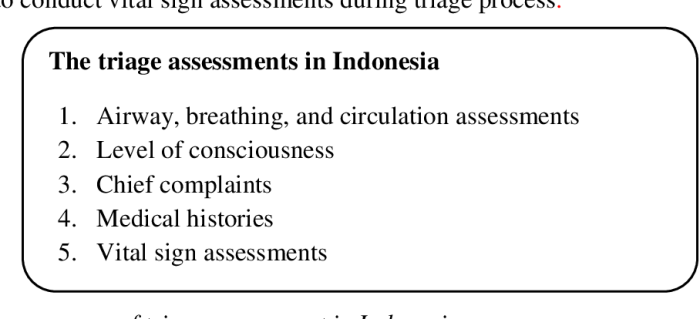Focus on delegating prioritizing triage disaster – In the realm of disaster management, the effective delegation of tasks, prioritization of actions, and triage of resources are paramount to successful response and recovery. This comprehensive guide delves into the principles, techniques, and ethical considerations surrounding these critical elements, providing a roadmap for disaster managers and responders.
By exploring the concepts of delegation and prioritization, we establish a framework for managing workload, improving efficiency, and ensuring that the most urgent and important tasks receive the necessary attention. We then delve into the principles of triage, examining its role in disaster response and the ethical considerations that guide decision-making in resource allocation and medical treatment.
Delegation and Prioritization: Focus On Delegating Prioritizing Triage Disaster

Effective delegation and prioritization are crucial for managing workload, improving efficiency, and achieving optimal outcomes in disaster response. Delegation involves assigning specific tasks to team members based on their skills and expertise, while prioritization involves determining the order in which tasks should be completed based on their urgency and importance.
Methods for Identifying Tasks Suitable for Delegation
- Identify tasks that are repetitive or routine in nature.
- Consider tasks that can be broken down into smaller, manageable components.
- Assess team members’ strengths and weaknesses to match tasks with appropriate individuals.
Techniques for Prioritizing Tasks, Focus on delegating prioritizing triage disaster
- Eisenhower Matrix:Categorize tasks based on urgency and importance, prioritizing those that are both urgent and important.
- MoSCoW Method:Classify tasks as “Must have,” “Should have,” “Could have,” or “Won’t have,” prioritizing “Must have” tasks first.
- ABCDE Method:Assign each task a priority level from A (highest) to E (lowest), based on its impact and deadline.
Triage in Disaster Management

Triage is a critical process in disaster response that involves prioritizing medical treatment and resource allocation based on the severity of injuries or illnesses. It ensures that those with the most urgent needs receive immediate attention while ensuring efficient use of limited resources.
Role of Triage in Prioritizing Medical Treatment
- Categorization:Triage assigns patients to different categories based on the severity of their injuries or illnesses, ranging from critical to minor.
- Immediate Treatment:Patients with life-threatening injuries or illnesses are prioritized for immediate medical intervention.
- Delayed Treatment:Patients with less severe injuries or illnesses may be placed in a queue for delayed treatment, depending on the availability of resources.
Ethical Considerations in Triage Decision-Making
- Respect for Human Dignity:Triage decisions must always prioritize the well-being and dignity of all patients.
- Equity:Treatment should be allocated fairly and impartially, regardless of age, gender, or social status.
- Transparency:The triage process should be transparent and accountable to ensure that decisions are made in an ethical and defensible manner.
FAQ Insights
What is the importance of delegation in disaster management?
Delegation allows disaster managers to distribute tasks and responsibilities effectively, reducing workload and improving efficiency. It enables them to focus on high-level decision-making and strategic planning.
How can triage be used to prioritize medical treatment in disasters?
Triage is a process that categorizes patients based on the severity of their injuries or illnesses. This helps medical personnel prioritize treatment, ensuring that those with the most urgent needs receive immediate attention.
What are the ethical considerations in triage decision-making?
Triage decisions must balance the principles of medical necessity, equity, and respect for human dignity. Ethical considerations include ensuring fair and impartial treatment, avoiding discrimination, and respecting patient autonomy.

